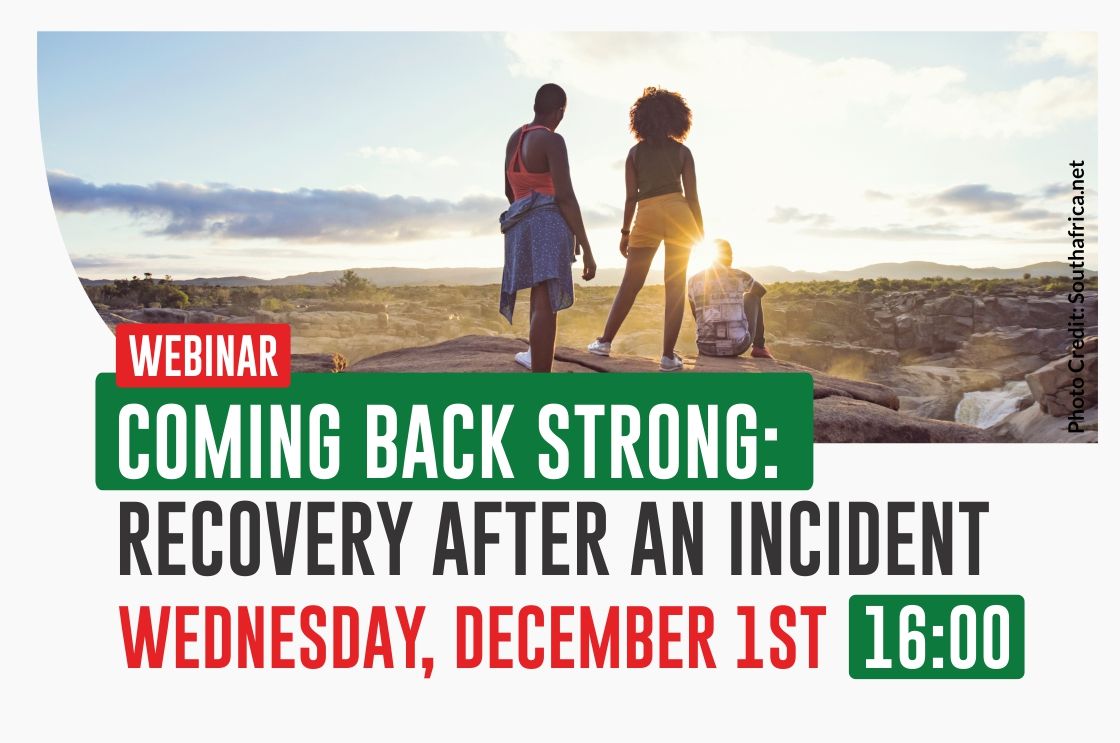It’s every business owner’s responsibility to do everything in their power to prevent unfortunate incidents from taking place. Unfortunately, as COVID has proven, it’s impossible to prepare for or avoid every misstep or eventuality. What’s just as crucial as mitigating risk and preventing incidents is knowing how to react and recover after an incident has taken place.
So, how do you come back stronger? How do you ensure that your business endures limited disruption? How do you make up for losses? How do you keep your reputation intact? Our experts weigh in as part of the third and final instalment of the Ready, Response, Recovery webinar series.
Understanding the role of insurance in recovery after an incident
Dewald Cillie, Director at SATIB Insurance Brokers, wishes to drive home the point that insurance should never be viewed as a first-line defence when it comes to safeguarding a business, and reminds business owners that it’s always better to prevent the fire in the first place, as opposed to trying to extinguish the flames once it has already broken out.
“It really is vital to understand the role of insurance in a company’s entire risk portfolio. It is your last line of defence. A safety net when all else has failed. All business owners must ensure that they are doing enough planning upfront and taking appropriate action for proper incident prevention relating to those foreseeable risks.”
In short, preparation and foresight are key.
“We believe in working closely with clients to help them fully comprehend the risks of their business and then implement the steps and procedures necessary to try to minimise the number of claims that come through. A catastrophic loss is a big event, and our experience is that in the moment of the incident, most people’s ability to think logically is drastically reduced. This is why it’s so critical to be prepared, to know what could happen, and to have specialists in your corner to assist in managing the scenario,” Dewald adds.
Rado Yankov, Operations Manager at Bryanston Country Club, agrees that preparation should always be a top priority for businesses of all types and sizes.
“At the Bryanston Country Club, we’re constantly trying to predict potential losses and eventualities. As such, we do our best to maintain a good database of suppliers and people on which we know we can rely if and when disaster strikes. If you do all the heavy lifting and create a crisis plan upfront, in the event of a crisis, your business will be able to be operational again as quickly as possible. Ultimately, working together with your broker and insurance provider to reduce the likelihood of events and knowing how to handle incidents when they do happen is in everyone’s benefit,” he says.
How to streamline the claims process
As mentioned, it’s impossible to steer clear of absolutely all incidents and there more than likely will come a time when a business owner needs to make a claim.
“Some incidents you just can’t prepare for or prevent. With something like COVID-19, for example, you can try to prepare all you want. The curveball is coming regardless,” comments Rutilio Usayi, Executive Head Group Claims at First Equity Insurance Group.
The question is, what can business owners do to ensure that the process of making a claim is fast, streamlined, and stress-free? Rutilio highlights the need to gather plenty of evidence to use as back-up.
“Take pictures and record videos. You never know when this concrete evidence could become useful. It’s also advisable to provide an extremely detailed explanation of what happened and what damages have occurred. As a broker, we look at the scope of the incident and compare it with the level of cover you have. Take care to complete your claim form in such a way that it clearly reflects the incident – keeping in mind that no detail is irrelevant. Don’t leave anyone guessing. Ultimately, it’s our job is to make sure the claim goes into the insurance company’s system the correct way the first time, eliminating any need for back and forth. How you start often determines how you finish!”
Rutilio also emphasises the importance of understanding your business and what it needs to operate efficiently.
“The insurance company often sends someone out to review damage upon receiving a claim. In this instance, you need to properly relate your business activities and operations to the loss assessor, letting them know how much money you’re likely to lose as a result of the disruption. You’ll also need to supply information such as to what extent your business can continue to operate despite the damage/incident and what you need to have in place in order to continue operating,” he says.
Riaan Kruger, General Manager and Director at La Petite Ferme, echoes Rutilio’s sentiments.
“The longer you’re in the hospitality industry, you realise just how inevitable it is to have to deal with a significant incident and making a claim. My advice is to always keep historic data regarding your company’s performance in previous years on hand to help speed up those claims and loss assessments. If you don’t have your data ready and you don’t understand your business, the entire process becomes painful and long-winded, extending business downtime. Don’t forget that efficient data collection is a positive endeavour for your business as a whole – not just for insurance!”
For Dewald, streamlining claims is all about getting your broker involved from the very beginning. After all, doing so provides clarification on what you need to get and what you need to do right from get-go.
“I also recommend regularly challenging and brainstorming with your broker as your requirements and your business evolve. Nurture that relationship. It will come in handy when it’s time to make a claim,” he concludes



